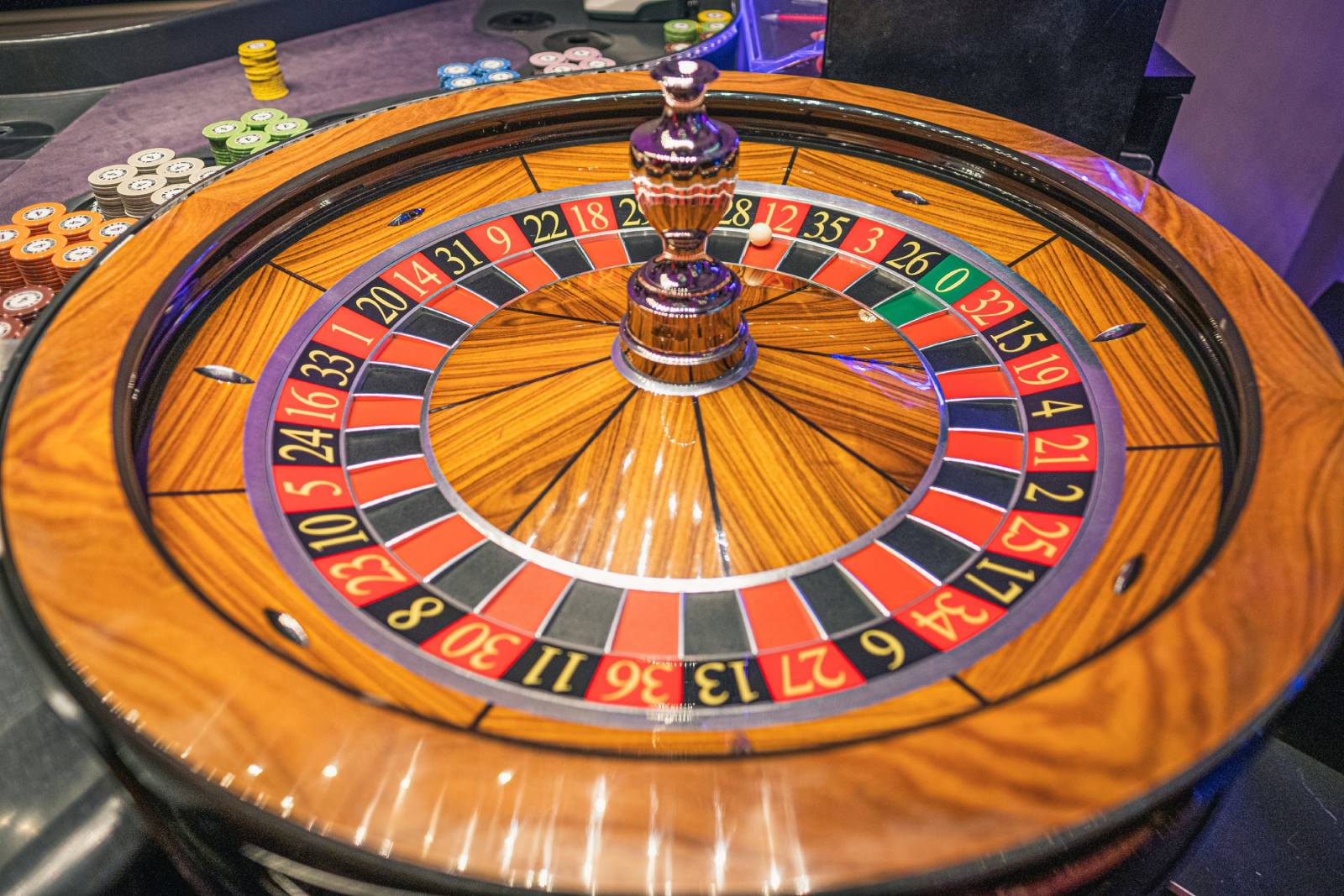Casinos have always been a rich source of inspiration for visual storytellers. They are places of bright lights, big dreams, and sometimes, heartbreaking losses. Through the lens of filmmakers and photographers, casinos become more than just places to gamble. They are stages where stories of ambition, fortune, and misfortune are told and reflect the broader human condition. This article dives into how these venues are portrayed in visual media and reveals the complex layers of emotion and narrative that they add to films and photography. Exploring the dynamic scenes captured within their walls, this journey uncovers the unique ways in which casinos have been immortalised as symbols of both opulence and vulnerability.
Table of Contents
The Symbolism of Casinos in Visual Media
Casinos carry a weight of symbolism in movies and photographs. They are not just backgrounds but are characters themselves. They represent a microcosm of society at large. The dazzling lights and the sound of coins dropping are symbols of hope and possibility. One of the most iconic films that captures this allure is Casino Royale, where the high-stakes world of gambling parallels the risks and rewards of espionage.
In the world of photography, casinos are often captured as stages where every glance and gesture tells a story of tension, decision-making, and the fragile line between triumph and loss. The presentation of casinos through the photographer’s lens emphasises the deep human connection to games of chance and skill.
This symbolism is masterfully showcased in Martin Scorsese’s Casino, where the opulence and danger of Las Vegas life are intertwined with the destinies of its characters. In the shadowy corners of the casino, where the glitz fades, films and photos often capture the raw emotions of those who gamble, revealing the profound impacts of risk and chance on the human spirit.
List of Iconic Casinos in Film
Casinos have long been a favoured backdrop in films, offering a setting that’s ripe with drama, tension, and opulence. They not only highlight the thrill of the gamble but also the complexities of human nature against a backdrop of luxury and decadence. Here’s a list of notable films where casinos play a significant role, each bringing something unique to the narrative:
- Casino Royale (2006): A cornerstone in the James Bond franchise, “Casino Royale” sees Bond, played by Daniel Craig, in a high-stakes poker game at the Casino Royale in Montenegro. The film is pivotal for showcasing Bond’s wits and grit beyond physical brawn, with the casino setting acting as a battleground for psychological warfare.
- Ocean’s Eleven (2001): This heist film directed by Steven Soderbergh is set in the glittering casinos of Las Vegas, where Danny Ocean and his eleven accomplices plan to rob three casinos simultaneously. The casinos, including the Bellagio, the Mirage, and the MGM Grand, are not just settings but integral to the plot’s complexity, showcasing the elaborate security measures and the challenge of breaching them.
- The Hangover (2009): Although not centered around gambling, “The Hangover” features memorable scenes within Caesars Palace in Las Vegas. The film uses the casino’s lavish and bewildering atmosphere to enhance the comedic mishaps of its protagonists as they piece together the events of a bachelor party gone awry.
- Casino (1995): Directed by Martin Scorsese, “Casino” delves deep into the workings of Las Vegas casinos in the 1970s and ’80s, focusing on the lives of those who run them. The film, featuring Robert De Niro and Sharon Stone, explores themes of power, greed, and betrayal, with the casino setting serving as a microcosm of wider societal issues.
- Rain Man (1988): This film showcases the Las Vegas Strip and its casinos as a backdrop to the story of two brothers, one of whom, played by Dustin Hoffman, has savant syndrome and an incredible ability to count cards. Their exploits at the blackjack tables become a crucial turning point in their relationship.
- Fear and Loathing in Las Vegas (1998): Adapted from Hunter S. Thompson’s novel, this film captures the psychedelic journey of journalist Raoul Duke and his attorney Dr. Gonzo in Las Vegas. While not focused on gambling, the casinos serve as kaleidoscopic settings that complement the film’s exploration of the American Dream and excess.
- Rounders (1998): Focusing on the underground world of high-stakes poker, “Rounders” stars Matt Damon as a law student and poker enthusiast navigating the risky waters of addiction and risk. The film is celebrated for its realistic portrayal of poker strategy and the culture surrounding the game.
- 21 (2008): Based on a true story, “21” follows a group of MIT students who become experts in card counting and subsequently take Vegas casinos for millions. The film is a thrilling look at the science and strategy behind blackjack, set against the backdrop of the city’s most iconic casinos.
- The Cooler (2003): Set in an old-school Las Vegas casino, “The Cooler” stars William H. Macy as a man whose sheer presence at gambling tables brings bad luck to high rollers. The film explores themes of luck, love, and redemption within the casino setting.
- Croupier (1998): A lesser-known gem, “Croupier” is a British film that offers a glimpse into the life of a casino dealer in London. It delves into the personal and professional conflicts that arise, providing a different perspective on the gambling world.
These films each use the casino setting to different effects, from the backdrop for high-stakes action and drama to a character in its own right, reflecting the allure and peril of the gambling world.
Casinos as a Stage for Human Drama
At the heart of every casino is a story of human drama. It’s where people from different backgrounds come with hopes and leave with stories of joy or despair. A film that explores this is The Gambler, where the protagonist’s journey through addiction and redemption is played out against the backdrop of casino tables.
It showcases how casinos can amplify emotions, drawing viewers into the personal battles of its characters. Besides movies, online gaming platforms are also centre stage for human drama. For example, incorporating features like the 32Red casino bonus reflects how online platforms extend the casino experience into new realms and opportunities.
That allows stories of risk and reward to unfold in the digital age. This evolution of the gambling scene adds a modern twist to the age-old fascination with betting and luck and demonstrates how the essence of casino drama adapts to contemporary mediums.
In addition, through the lens of cinema, the bustling floors of casinos serve as a canvas. They paint vivid tales of aspiration and setback, where each player’s face tells a story of hope, anticipation, and, sometimes, the hard lessons of loss.
The Duality of Glamour and Despair
The contrast between the amazing exterior and the often harsh reality forms a central theme in the portrayal of casinos. This duality is vividly presented in films like Ocean’s Eleven, where the glamorous robbery contrasts with the personal risks involved.
The comparison of lavish décor with the desperation of losing gamblers presents illusions of wealth and happiness that casinos project. This theme is explored in Leaving Las Vegas, where the protagonist’s spiral into alcoholism and gambling is set against the backdrop of the city’s bright lights, providing a stark look at the cost of addiction and the pursuit of escape.
This complex interplay between allure and risk is further explored in narratives where the casino’s opulence often mirrors the temporary nature of fortune, highlighting the thin line between success and downfall in the gamble of life. This idea is seen in every casino, where bright lights and sounds hide the truth of people chasing their dreams, only to find themselves stuck between hope and losing.
Casinos and the Concept of Fate
The unpredictability of casino games serves as a powerful metaphor for the randomness of life itself. Films like Rounders delve into the psychology of gambling, portraying it as a battle of intelligence and luck, reflecting broader themes of fate and control. Also, in the context of photographs, the images of gamblers at a slot machine, surrounded by the buzz of a busy casino, always capture the solitary pursuit of fortune and highlight the individual’s confrontation with destiny in these spaces.
This exploration of destiny and chance is central to the casino’s allure and offers a mirror to the unpredictability of life’s fortunes. The cinematic portrayal of casinos in Hard Eight movie illustrates the mentor-mentee relationship set against the backdrop of gambling, emphasising how fate can bring people together in unexpected ways.
The dance of luck in these tales reflects life’s inherent risks, where each decision at the table mirrors our daily choices, teaching us about the balance between making our luck and surrendering to our destinies.
The Impact of Casinos on Popular Culture
Casinos have left an indelible mark on popular culture, shaping perceptions of risk, success, and the pursuit of the American Dream. Films like Las Vegas and iconic images of the Vegas Strip at night have contributed to the mythologization of casinos as lands of opportunity and adventure. These portrayals influence how gambling and risk-taking are viewed, often glamorising the casino lifestyle while glossing over the darker aspects.
The depiction of casinos in media also reflects on societal values and the allure of quick success. The transformation of casinos from exclusive clubs to mainstream entertainment highlights changing attitudes towards gambling and its role in popular culture. That illustrates how these institutions have evolved to become embedded in the fabric of modern life.
Casinos in stories and pictures often teach us about the balance between taking chances and facing the consequences. This has made people see casinos not just as places to gamble, but as stages where life’s big lessons are learned.










